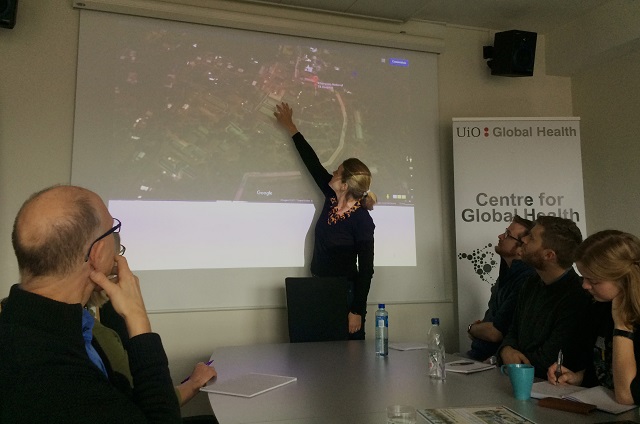Hospital trajectories in Tanzania
In her lecture, Fanny Chabrol presented insights from her ethnographic fieldwork in the Kibong’oto hospital, which took place in 2017-2018 and involved observations in the hospital and interviews with current and former members of staff.
The tuberculosis (TB) manifested itself in Tanzania long before the HIV/AIDS that led to a sharp increase in people affected. With the more recent occurrence of multidrug resistant TB (MDRTB), the treatment of TB has changed significantly. Before the development of MDRTB, most patients treated for TB were outpatients, managing their treatment at home. Today however, more and more patients need hospitalization for 12-24 months, segregated from the surrounding society during their treatment. To meet these changes, the Kibong'oto infectious diseases hospital in the Kilimanjaro region of Tanzania is specialized particularly with treatment of MDRTB patients. Since they began this in 2009 the hospital has treated more than 600 MDRTB patients.

Chabrol discussed how the hospital (healthcare professionals, patients, buildings, materials, things, etc.) has adapted to the manifold changes in the disease, its treatment strategy, and socio-political-economic changes happening in the local environment and in global health.
Chabrol studies the anthropology of hospital infrastructures today in Africa, closely interconnecting history and contemporary life, affects and economics, local environment and global transformation. The study in Kibong'oto was undertaken through the ERC GlobHealth project and in collaboration with Christoph Gradmann from the Department of Community Medicine and Global Health at University of Oslo (UiO).
Fanny Chabrol is a research fellow at the Institut de Recherches pour le Développement (IRD), based in Centre Population et Développement (CEPED) in Paris. She has worked on HIV/AIDS in Botswana, on viral hepatitis B and C in Cameroon and on tuberculosis in Tanzania. Most of her work is rooted in hospital ethnography and asks questions around care, health policies, nation states and Africa as a site for global interventions.
The seminar was organized by the Department of Social Anthropology (UiO) in collaboration with the Centre for Global Health (UiO).
